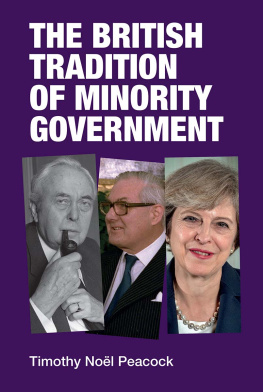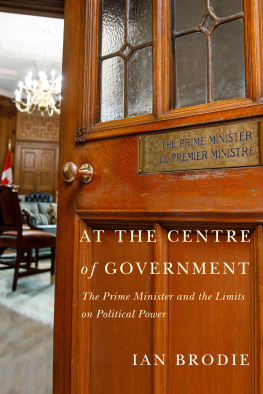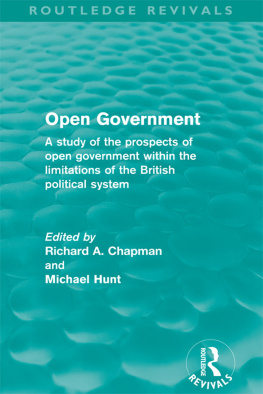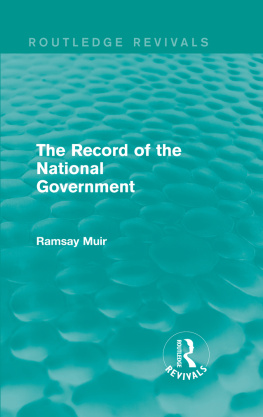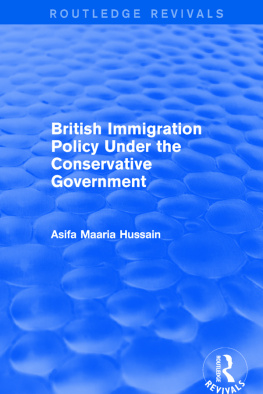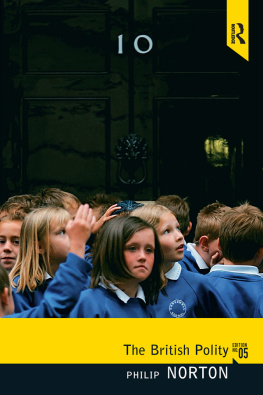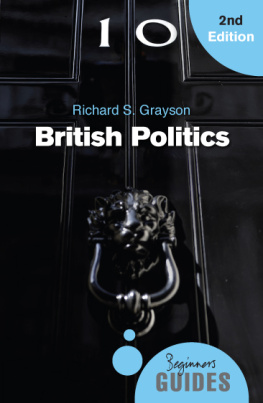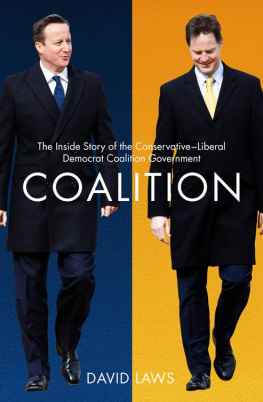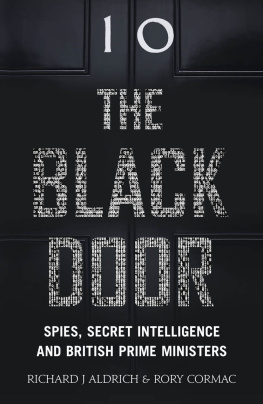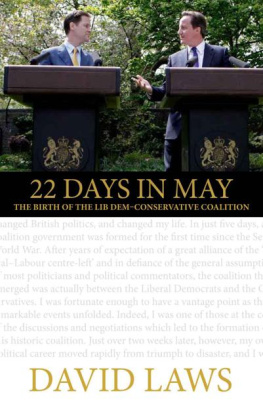The British tradition of minority government
The British tradition of minority government
Timothy Nol Peacock
Manchester University Press
Copyright Timothy Nol Peacock 2018
The right of Timothy Nol Peacock to be identified as the author of this work has been asserted by him in accordance with the Copyright, Designs and Patents Act 1988.
Published by Manchester University Press
Altrincham Street, Manchester M1 7JA
www.manchesteruniversitypress.co.uk
British Library Cataloguing-in-Publication Data
A catalogue record for this book is available from the British Library
ISBN 978 1 5261 2326 8 hardback
First published 2018
The publisher has no responsibility for the persistence or accuracy of URLs for any external or third-party internet websites referred to in this book, and does not guarantee that any content on such websites is, or will remain, accurate or appropriate.
Typeset in Minion Pro by
Servis Filmsetting Ltd, Stockport, Cheshire
Contents
One of the most significant phenomena in British political history since the 1970s has been the formation of minority governments by prime ministers, including Edward Heath, Harold Wilson, Jim Callaghan, John Major and, most recently, Theresa May in June 2017. Steeped in the majoritarian culture of the Westminster system, dominated by single-party adversarial majority governments, historians and commentators have not given the phenomenon of minority government the attention it has deserved, which has led to a number of pervasive myths. These myths may be, on the one hand, widely held beliefs explicitly articulated (such as there being a binary choice in election dates between 1978 and 1979). On the other hand, myths may arise through an implicit acceptance of, or a failure to question, the inevitability of certain events (such as the Government formed in April 1976 continuing as a minority without holding an election or forming a coalition).
Consequently, minority governance has been dismissed as an aberration, an interlude between normal and victorious administrations, which have commanded the interest of politicians, political analysts and the general public. This study seeks to challenge these myths and established perceptions of minority government in the 1970s through a reading of declassified internal government and party files, and to demonstrate that there is a distinctive British tradition of minority government that provides a new perspective on the existing corpus of international theory regarding the subject.
To support the concept of this hitherto unrecognised tradition, the study incorporates comparisons with British minority administrations from the 1920s to the Conservative Minority Government elected in June 2017. Comparisons are also made with minority governments globally to distinguish the unique and distinctive contribution of Britains tradition. There is not the scope here to conduct detailed comparisons across the full range of British minority governments historically. A further study of other administrations will be needed to trace the impact and evolution of this tradition.
I would like to express my warmest gratitude to the Arts and Humanities Research Council (AHRC) who funded my initial investigations into the subject; those who gave permission to access unpublished party files; to the staff of the various libraries that I have visited, in particular at the Churchill Archives Centre, Cambridge, the Bodleian Library, Oxford, The National Archives, London, the London School of Economics (LSE) Archives, the Parliamentary Archives, Westminster, the Labour History Archive Study Centre, Manchester, the National Library of Wales, Aberystwyth, and the University of Glasgow Library; the staff of Manchester University Press, for their support in preparing the manuscript; my friends, for their kind words and interest in my work; Professors Phillips OBrien, Simon Ball and Andrew Thorpe for their advice and encouragement; and last, but not least, my parents, Nol and Sandra Peacock, whose inspiration, unfailing support and encouragement mean more than words can say.
New perspectives
[On 7 February 1978, Prime Minister James Callaghan] said that it was quite conceivable the outcome of the election would, as he had indicated to Mr Steel, be a close run thing with the Tories being the largest party without an overall majority [] he would resign in those circumstances [] in his judgement Mrs Thatcher would certainly try to remain as Prime Minister for as long as possible, even if only for a fortnight he would do the same in her shoes.
This previously classified Labour Government minute from February 1978 records a candid discussion between Labour Prime Minister James Callaghan and his Principal Private Secretary Sir Kenneth Stowe. At a time when the Government had no overall majority, and a sudden election followed by another hung parliament was considered to be a serious possibility, Callaghan was weighing up whether to resign immediately and allow Conservative Opposition leader Margaret Thatcher to form a minority government, or to attempt to stay in office himself by making further deals with other political parties. On 9 June 2017, the unexpected loss of the Conservative Governments majority in a snap general election led senior Conservatives to weigh up in the early hours of the morning whether or not Prime Minister Theresa May should resign. As it became clearer that the Conservatives would be the largest party and not far short of a majority, the decision taken was that May should remain as leader for the immediate future, and the Government should attempt to remain in office by forming a minority government with the Democratic Unionist Party (DUP).
Conservative plans for a coalition government, a snap general election, prime ministers considering whether to stay in office after an electoral or a referendum defeat, and the contemplation of both Labour and Conservative deals with parties including, among others, the Liberals, Scottish National Party (SNP) and Northern Ireland Unionist parties, are all aspects readily identifiable in British politics since 2010, particularly following the indecisive result in June 2017. However, plans for all these different scenarios, drawn up by political leaders and their advisers in the 1970s, were contained in previously classified files, released in the years up to and after 2015. These documents challenge the mythology that dominates historical accounts, documentary films and television news programmes, in particular the contention that the minority governments of this era were weak, unthinking aberrations, alien to Britains otherwise strong majoritarian political traditions.
Using these newly available sources, including Labour and Conservative strategy papers, this study provides fresh perspective on 1970s Britain and on the countrys contemporary politics. The work examines different aspects that had to be confronted by political leaders, including, inter alia, forming governments, handling parliamentary defeats, electoral timing, negotiating with other parties and making post-electoral plans for a minority or coalition government. At one level, by bringing to light hidden narratives, it aims to demythologise the widespread academic and popular understanding of this era, showing that both main parties were far more strategically proactive than has previously been assumed. At another level, it demonstrates the British exceptionalism in minority government against an international backcloth, and provides a methodological foundation for examining contemporary challenges of new forms of government in democracies around the world.

